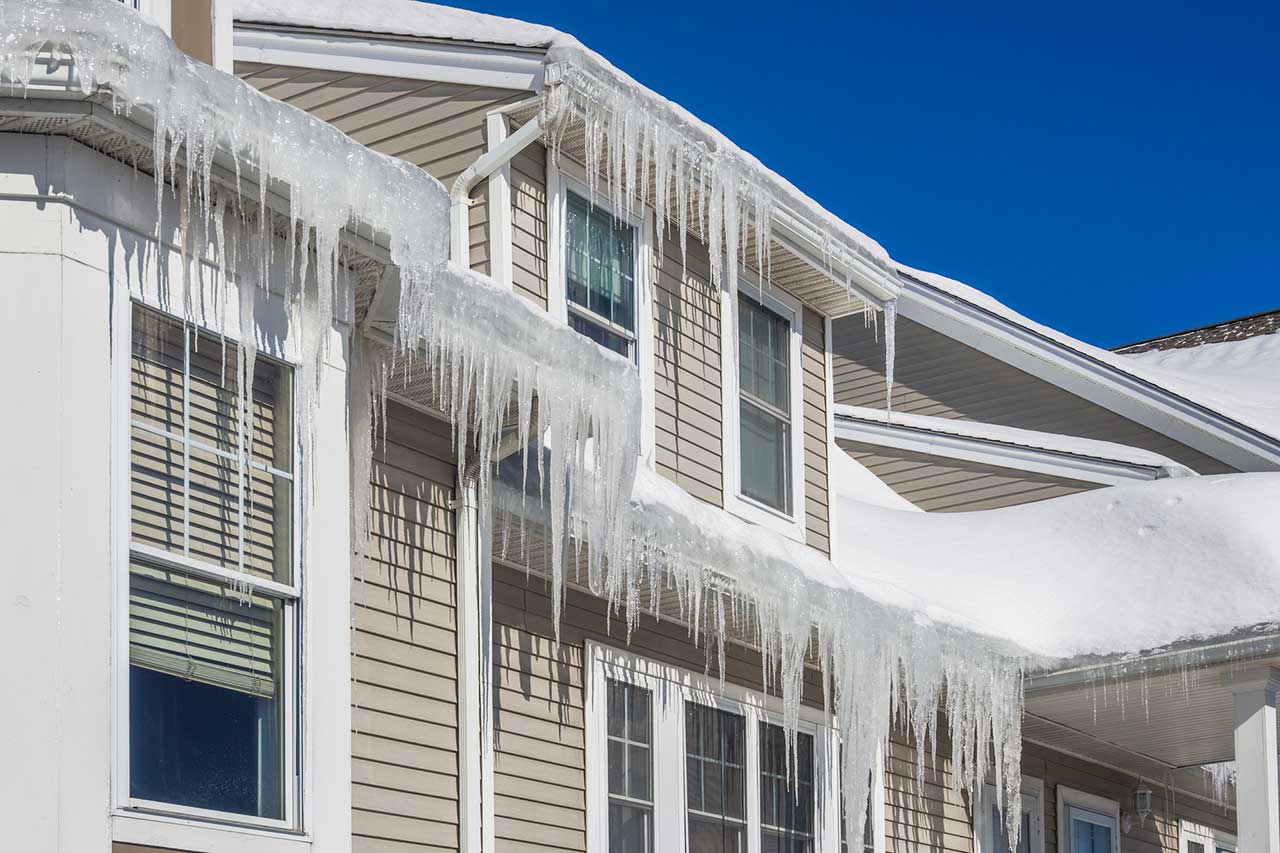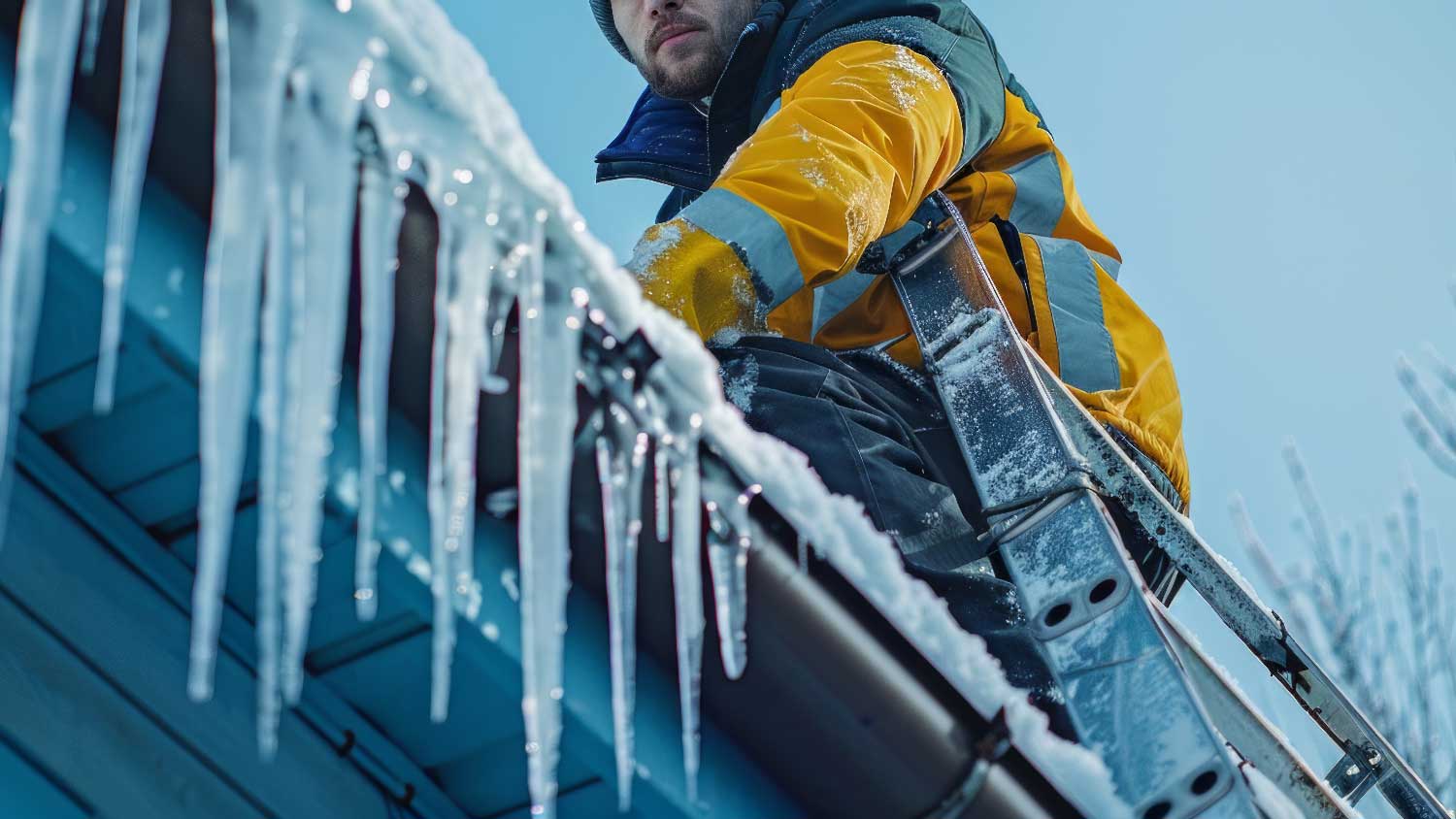
Learn how much ice dam removal costs based on factors such as the removal method, labor rates, risk factors, and damage repairs.
Renting a pressure washer costs an average of $90


Pressure washer rental costs an average of $90, with most homeowners paying between $50 and $250 per day.
The type of pressure washer, rental duration, and additional accessories impact the total rental cost.
Renting a pressure washer allows you to clean driveways, decks, siding, and other surfaces around your home to extend their lifespan and boost your curb appeal.
This article was updated using automation technology and thoroughly reviewed for accuracy by HomeAdvisor Editor Ryan Noonan.
Renting a pressure washer offers a cost-effective solution for efficiently cleaning driveways, decks, siding, and other surfaces around the home. With average rental costs ranging from $50 and $250 per day, it provides flexibility without the commitment of purchasing equipment. Selecting the right pressure washer ensures optimal results for your specific project, emphasizing the importance of choosing equipment that matches your needs.

The primary difference between a power washer and a pressure washer is the temperature of the water used. Power washers use heated water, making them more effective at removing tough grime and stains. They cost more to rent than pressure washers. Both machines are effective at cleaning your home’s exterior surfaces, but power washers incorporate a heating element to deliver hot pressurized streams, whereas pressure washers use cold pressurized water.
Pressure washer rental fees are based on several factors, including how long you rent it for, renting additional accessories, and potential late fees. These are common cost factors that make up the total cost of renting a pressure washer.
The cost of renting additional pressure washer accessories varies by location and can increase the daily rental rate. Common accessories include surface cleaners and extension wands.
Surface cleaners enhance efficiency for driveway and deck power washing costs, potentially reducing overall costs. They’re ideal for cleaning driveways and large, flat areas. Extension wands help increase your reach, reducing the need to climb ladders when cleaning hard-to-reach areas. These are the average costs for renting each of these accessories.
| Accessory Type | Average Rental Cost (per Day) |
|---|---|
| Surface cleaners | $20–$50 |
| Extension wands | $15–$20 |
There are generally only a few rental duration options, and the length of the project determines the appropriate rental period. Pressure washer rentals are often categorized into four time frames: four hours, daily, weekly, and four weeks. The table below provides the price range for each rental period for standard power washers intended for residential use.
| Rental Period | Average Cost Range |
|---|---|
| Four hours | $40–$175 |
| One day | $50–$250 |
| One week | $180–$660 |
| Four weeks | $400–$2,000 |
Pickup and drop-off times vary by location and rental agency. Returning the equipment late may result in additional fees, including extra rental days. It is also important to consider the time required for transportation to and from the store, including loading and unloading the machine. Ensuring that the shop is open when returning the equipment or confirming the availability of contactless drop-off options can help avoid delays or additional fees.
There are two main types of pressure washers: electric and gas-powered. Electric pressure washers are generally less expensive and have lower pressure outputs. Gas pressure washers are more expensive but offer higher pressure outputs.
| Washer Type | Average Cost Range (per Day) |
|---|---|
| Electric pressure washer | $40–$50 |
| Gas pressure washer | $70–$100 |
| Gas power washer | $100–$250 |
Renting an electric pressure washer costs between $40 and $50 per day and is less common than purchasing one. These models have lower pressure levels, generally ranging from 1,000 to 2,000 PSI, making them suitable for smaller-scale projects such as washing decks or sidewalks.
Gas pressure washers cost between $70 and $100 per day to rent. These units offer a wide range of pressure options, from 1,500 to 4,500 PSI. Mounted on wheels for easy transportation, they are equipped to handle most projects, including driveway cleaning and paint stripping.
Renting gas power washers costs between $100 and $250 per day. These units include heating elements and offer PSI levels ranging from 2,500 to 5,000. Power washers in the 4,000 to 5,000 PSI range may run on diesel rather than gas. The high-pressure, heated water stream effectively removes mold and mildew from hard surfaces.
Renting a pressure washer can result in significant savings compared to hiring a local power washing pro. There are additional ways to reduce the cost of pressure washing when undertaking the task yourself. Consider the following budgeting tips for pressure washing:
Choose the appropriate pressure washer type to avoid overpaying for unnecessary power.
Plan the rental period carefully to avoid late fees and additional rental days.
Create cleaning solutions using household items to save on detergent costs.
Prepare surfaces thoroughly by removing loose debris to reduce cleaning time and save on rental hours.
Several factors influence the choice between renting a pressure washer for a DIY project and hiring a professional service. Renting a pressure washer can offer upfront cost savings, with average daily rates ranging from $50 to $250. However, DIY pressure washing requires time, effort, and expertise to avoid damaging surfaces or causing injury.
Professional pressure washing costs factor in experience, insurance, and specialized equipment. It is important to consider the size and complexity of the project, comfort level with operating the equipment, and to compare total costs—including potential risks—before making a decision on whether to hire a pro or rent a pressure washer and tackle the job yourself.
No place is more important than your home, which is why HomeAdvisor connects homeowners with local pros to transform their houses into homes they love. To help homeowners prepare for their next project, HomeAdvisor provides readers with accurate cost data and follows strict editorial guidelines. After a project is complete, we survey real customers about the costs to develop the pricing data you see, so you can make the best decisions for you and your home. We pair this data with research from reputable sources, including the U.S. Bureau of Labor Statistics, academic journals, market studies, and interviews with industry experts—all to ensure our prices reflect real-world projects.
From average costs to expert advice, get all the answers you need to get your job done.

Learn how much ice dam removal costs based on factors such as the removal method, labor rates, risk factors, and damage repairs.

Use this guide to budget for pressure washing your driveway based on cost factors such as driveway size, labor costs, equipment, and more.

Who removes ice dams? Learn who to hire and who to call. Roof cleaners use safe steam methods to protect your roof—see how pros get it done.

Wondering who repairs power washers? Learn who to call, how repairs work, and hourly costs so you can decide between a pro or a handyperson today.

Wondering who power washes houses? Learn who to call, pro vs. handyperson benefits, what the job includes, and what it costs.